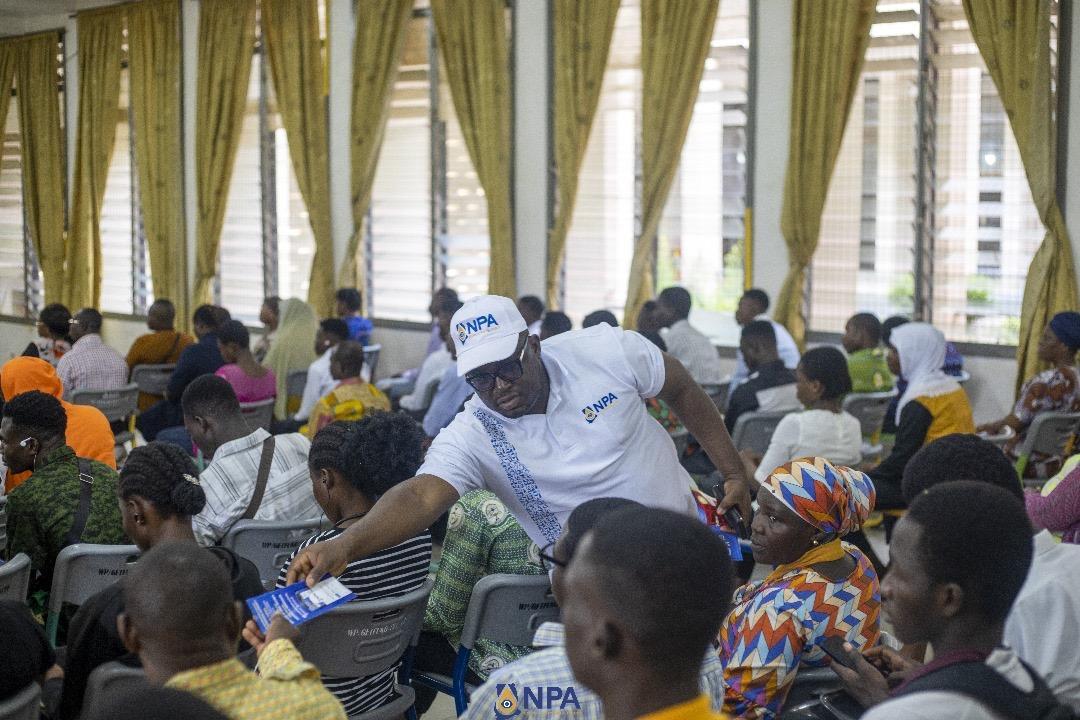Africa-Press – Ghana. The National Petroleum Authority (NPA) has cautioned the public to transport filled Liquified Petroleum Gas (LPG) cylinders in a secure and upright position.
This, the Authority explained, helped prevent over-pressurisation that could damage the pressure relief valve, that potentially could cause gas leaks or explosions.
“Consumers of petroleum products, especially LPG, must prioritise safety,” said Mrs Eunice Budu-Nyarko, Head of Consumer Services at the NPA, during an LPG safety campaign at some tertiary institutions in the Upper West Region.
“Ignoring safety measures could result in fire outbreaks at homes and workplaces, leading to loss of lives, injuries, and damage to property,” she added.
She advised the public to transport cylinders in a stable, upright position to minimise risk.
Responding to a question on fuel dispensing errors at filling stations, Mrs. Budu-Nyarko urged motorists to confirm the type of fuel being dispensed and take note of the colour-coded nozzles: red for petrol (Super), black for diesel, and green for high-octane (RON 95).
Mr. Abraham Dauda, NPA’s Upper West Regional Supervisor for Inspections and Monitoring, cautioned students against using mobile phones while cooking and encouraged strict adherence to safety protocols.
Prof. Hamidatu Saaka Darimani, Vice-Chancellor of Dr Hilla Liman Technical University, called for the adoption of Burkina Faso’s model, where cylinders are purchased only from licensed outlets.
She noted that this would protect consumers from substandard or repainted cylinders.
Commending the NPA’s awareness efforts, Prof Darimani noted that safety went beyond fire prevention; it required a deeper understanding of the risks posed by negligence.
Dr Hilla Liman Technical University and Nusrat Jahan Ahmadiyya College of Education were among the first institutions to benefit from the sensitisation campaign.
For More News And Analysis About Ghana Follow Africa-Press







